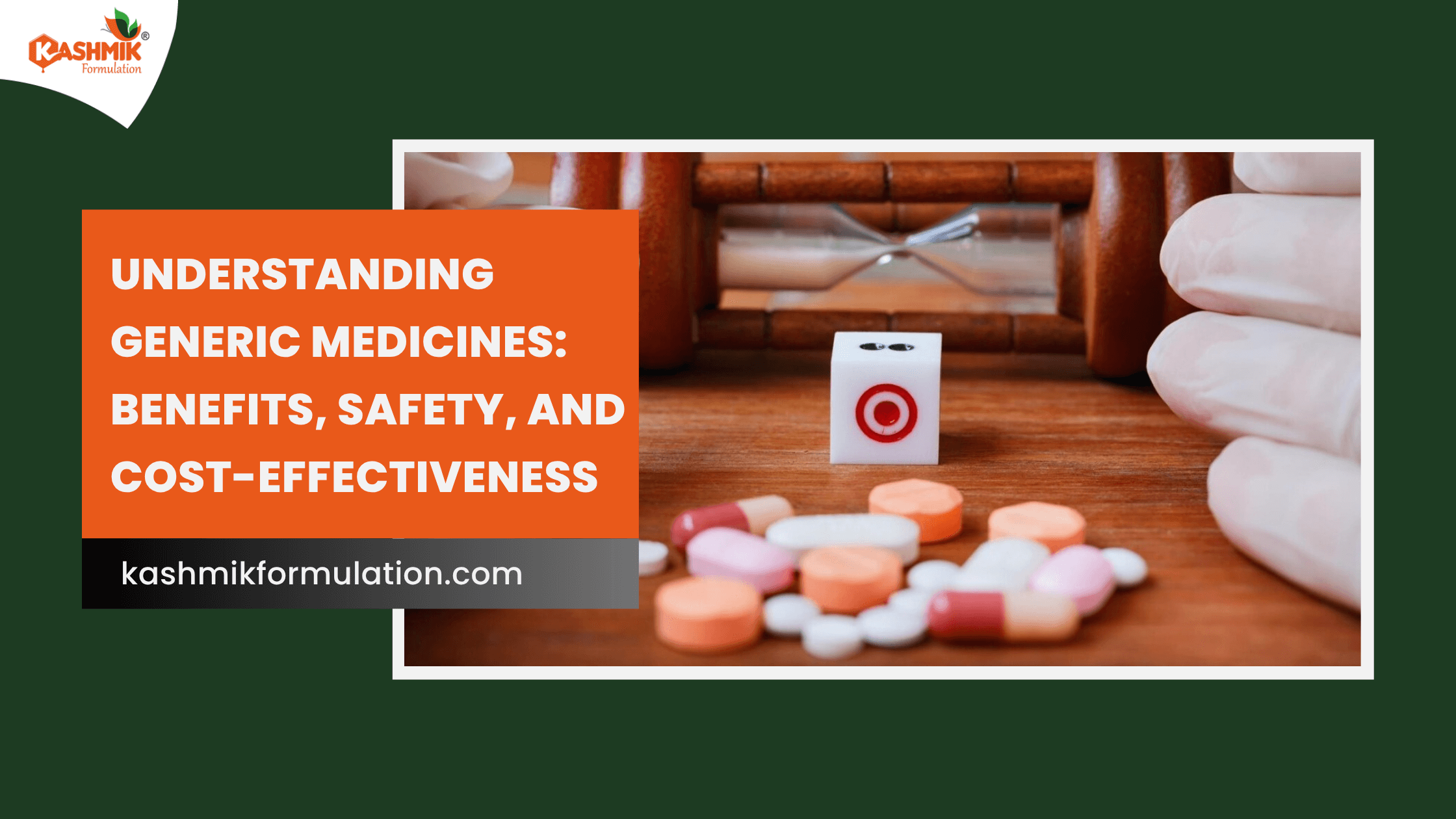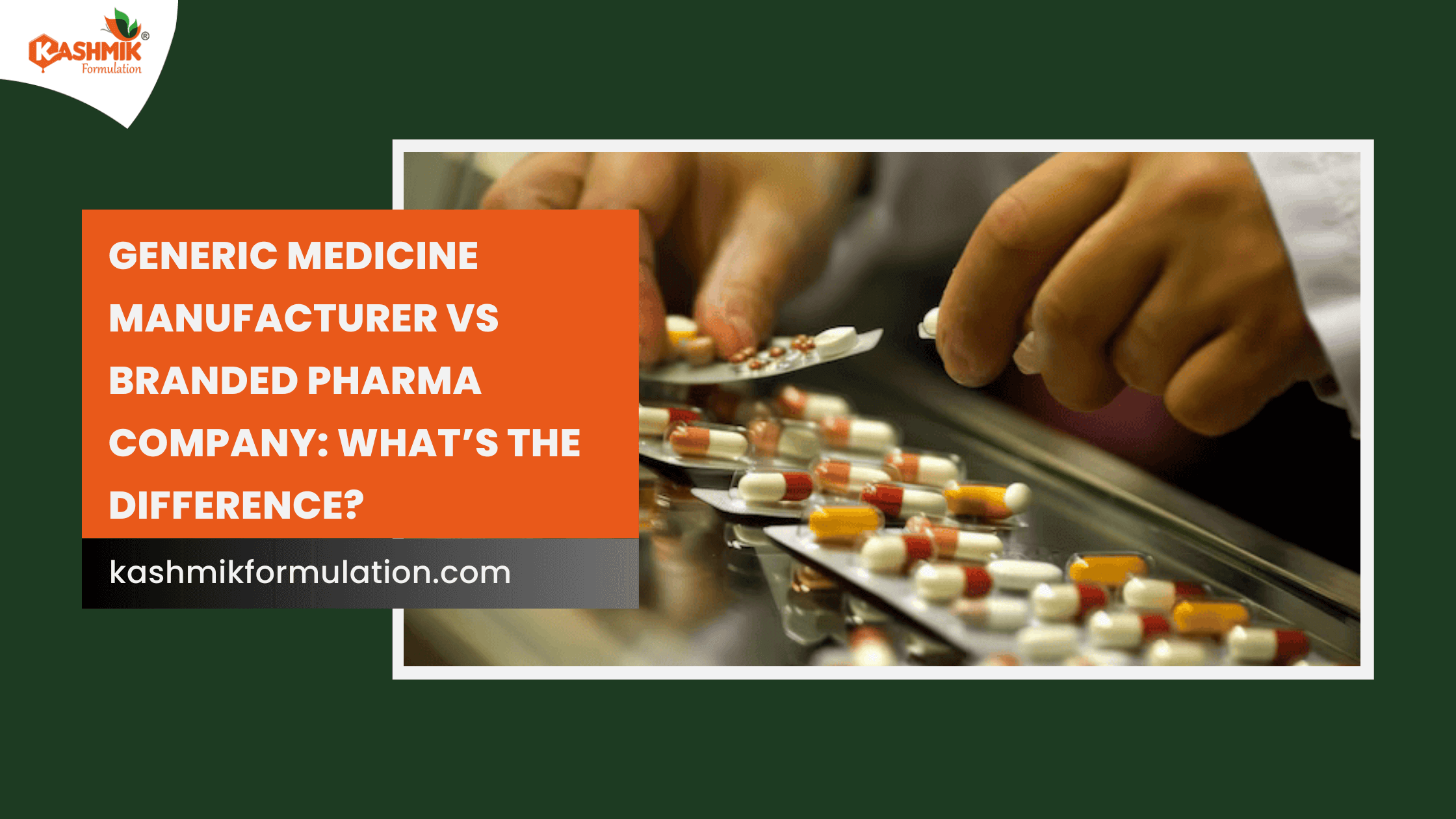In the recent years, India has seen a huge rise in the awareness and adoption of generic medicines. Once misunderstood and often overlooked, these affordable alternatives to the branded medicines are now seeing public trust and a major thanks goes to the government initiatives, the various educational campaigns and of course, the increasing healthcare costs that makes affordability a growing and burning concern.
The shift in perception is particularly evident in the rural and semi urban places in India. The experts of generic medicine manufacturer in Gujarat have said that people are now more receptive to budget friendly medical options which do not compromise on the treatment outcomes. As India continues its journey towards universal healthcare, understanding the generic medicines and why they matter has become very important.
Generic medicines are essentially the chemical copies of the brand name drugs, which comes in the same dosage, strength, quality, intended use, performance characteristics, and route of administration. But despite these similar therapeutic benefits, they come at a significantly lower price. This raises a lot of questions – how different they are, whether they are safe and most importantly, why are they so less priced than the branded names?
Let’s breakdown the benefits, the safety aspects, and the price advantages to understand why these generic medicines are seeing a growing relevance in India’s healthcare landscape.
Benefits of generic medicines
Accessibility without compromise
One of the most notable benefits of generic medicines is their adaptability to make quality healthcare accessible to everyone. India, with its huge population and disparity in income, needs medical solutions that can bridge this affordability gap in medical treatment and the generic medicines can do that. The rise of generic medicine manufacturer in Gujarat is one such hint as these medications are getting approved by the Central Drug Standard Control organization and are allowed in the market. They contain the same ingredients as their branded names and are designed to deliver the same therapeutic effect. Chronic illness is seen across masses such as hypertension, diabetes, acute infections, and for them, the medicines which are provided by reliable manufacturers at a much lower price are a sign of relief. The patients can complete the full treatment cycles without thinking about the financial tension. This is directly supports better health outcomes. In fact, doctors and pharmacists across the country are increasingly recommending these generics that can reduce the rate of treatment drop-offs due to cost. Another very important benefit is competition. The entry of generic drugs into the market has drive down the price of brand-name drugs as well as increased a more competitive and transparent Pharmaceutical industry. To say it in a better way, it democratizes medicine and strengthens the public health infrastructure which help in making the essential treatments affordable and available across the masses.
Safety and quality
A very strong misconception regarding the generic medicine is that they somehow are inferior and less effective than the brand name drugs. This is very far from the truth because in India, CDSCO mandates that all generic medicines should have the same safety, efficacy, and quality standards as its innovative drugs. They have to undergo rigorous bioequivalence studies which can ensure that they release the same ingredients into the bloodstream in the same rate and extent as their original ones. The manufacturers of generic medicines also need to adhere to good Manufacturing practices (GMP) and there are frequent audits that ensure compliance. Indian pharmaceutical companies are among the world leaders in generic drug manufacture. Many firms export these to the US and Europe which has very regulated medicine market. So, it can be very well be understood that the level of scrutiny and quality assurance is there in the safety and the use of these medicines. Moreover, the generic medicines are not secondhand or substandard, which are commonly used definitions when it comes to these medicines. They are simply released after the patent expiry of the original product. This is why they come at a much lower cost, but not at a compromised quality. It saves money from the marketing or the research and development and therefore the selling price is less than the branded ones. It is just a trusted alternative, especially in countries like India where more than 60% of healthcare expenses are paid out of pocket by patients. There are various launches of schemes like Jan Aushadhi by Indian government which can bring in more awareness about these medicines.
Cost effectiveness, the game changer in healthcare
Perhaps the most compelling reason to switch to generic medicines is their price. The generic drugs are usually 30 to 90% cheaper than their branded counterparts. So, for a family which has to manage chronic conditions and requires long-term medication, this price difference can actually translate to a significant saving without compromising on health and medical treatment. The cost advantage stems from the fact, as mentioned earlier, that it does not need to be at the expense of developing a new drug from scratch. You just need to replicate the formulation of drugs that’s already there. And it can save millions in research and clinical trials and marketing, which is directly affects the price for the consumers. In a country like India, where medical inflation is growing at nearly double the rate of general inflation, affordable health care is not a luxury but a necessity. So, when it comes to generic medicines, it is a relief to not just individual patients but to a broader economy. It will reduce the financial burden on the government-funded health care schemes and these general medicines will play a pivotal role in improving the access and equity in treatment.
The rise of general medicines in India marks a positive shift in our healthcare mindset from brand centric consumption to a more value based and informed choice will certainly be a wise decision. Although there will be some skepticism in some quarters, but awareness, transparency and education can help to bust the myths that generics are not any less effective or unsafe. As more Indians become conscious of both quality and price in healthcare decisions, there will be a better laid foundation of an affordable and inclusive healthcare system in the country.






